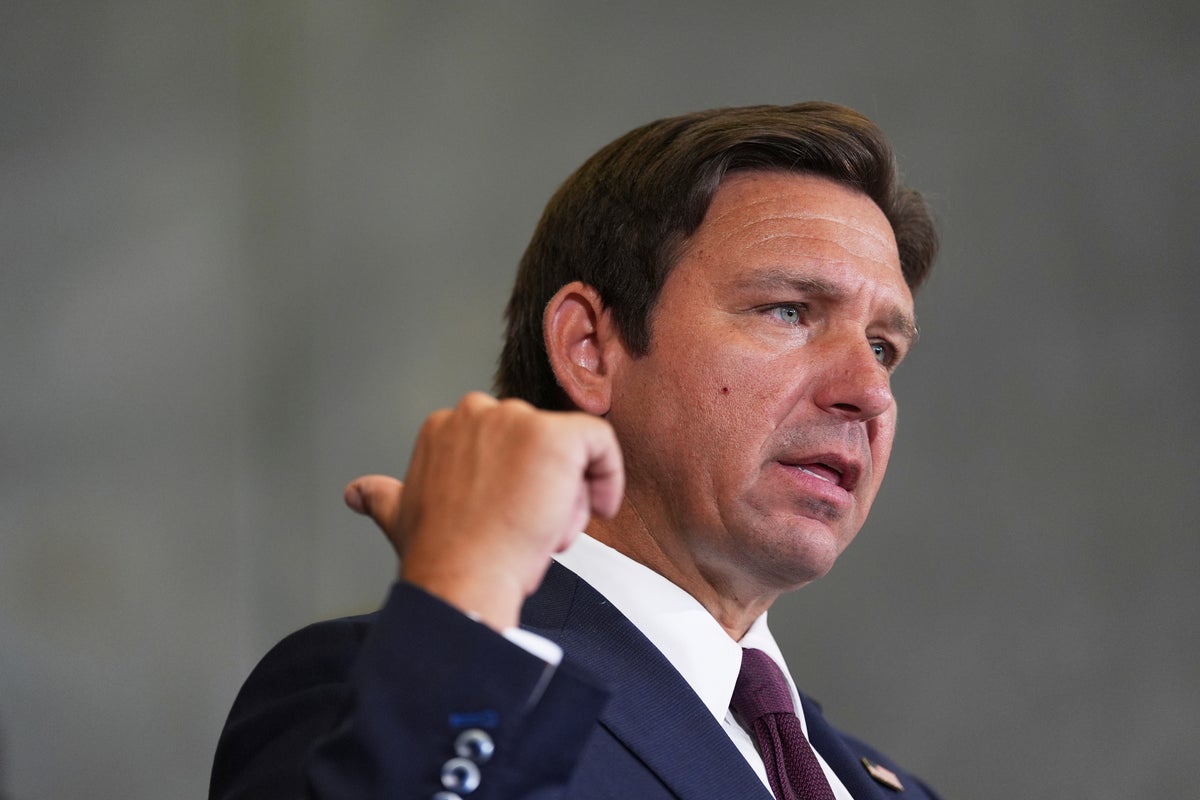DeSantis’s WWE Debut: A Rough Reception and Political Implications
Florida Governor Ron DeSantis faced a tumultuous reception during a recent appearance at WWE’s Saturday Night’s Main Event in Tampa over the Memorial Day weekend. As he waved to the crowd from ringside at the Yuengling Center, the local wrestling fans made their feelings known, showering him with boos and chants of “You suck!” This unexpected hostility was captured on various social media platforms, amplifying the message that DeSantis, once a rising star in Republican circles, may not be as popular as he once thought.
The Scene at Yuengling Center
Attending a wrestling event might have seemed like a strategic move for DeSantis, hoping to connect with a demographic known for its fervent passion and entertainment-driven engagement. Instead, he was greeted with a chorus of jeers, forcing him to awkwardly grin and clap as resentment rained down around him. The moment echoed the recent fate of Hulk Hogan, another political figure who faced boos from the crowd just months prior. Videos of DeSantis’s reception highlight a growing disconnect between him and the mainstream GOP base.
Rapid Rise and Subsequent Decline
After gaining significant attention during the COVID-19 pandemic for his combative leadership, many believed DeSantis had the potential to challenge Donald Trump for the GOP nomination in 2023. A New York Post headline dubbed him “DeFuture,” capturing the optimism surrounding his candidacy. However, as the primary season progressed, the bloom quickly faded, with mounting evidence suggesting that he struggled to resonate with voters.
In January 2024, just days before the New Hampshire primary, DeSantis withdrew his candidacy, a decision that shocked many. His reluctant endorsement of Trump, whom he had criticized earlier, illustrated the complexities of inter-party dynamics and the challenges he faced in a rapidly shifting electoral landscape.
Perceptions of Political Charisma
Political analysts have been vocal about DeSantis’s decline in popularity. Lincoln Project co-founder Rick Wilson remarked that he exhibited “the opposite of political charisma,” suggesting that the initial perception of DeSantis as an effective campaigner was quickly put to the test and found lacking. As the election season unfolded, his ability to connect with voters diminished, laying bare the frailty of his political strategy.
A Tumultuous Future
As DeSantis approaches the end of his second term, the question of his political future looms large. With his tenure as governor scheduled to conclude in January 2027, speculation mounts about his next steps. Already, President Biden has expressed support for Florida Representative Byron Donalds as a preferred candidate, signaling a shift in allegiance among Florida Republicans.
Political science professor Aubrey Jewett articulated a stark view of DeSantis’s current standing, noting that he has “crashed to the ground” and is now regarded as an average governor, stripped of the extraordinary status he once held in conservative circles. The dynamics of his leadership style, characterized by an autocratic approach, may have alienated potential allies, further complicating his political trajectory.
Conclusion
The recent spectacle at the Yuengling Center encapsulates the challenges DeSantis faces as he navigates a tumultuous political landscape. From a promising rise to a sharp decline marked by public discontent, his journey reflects the unpredictable nature of American politics—where even the most formidable figures can find themselves wrestling with unanticipated challenges and shifting loyalties.


